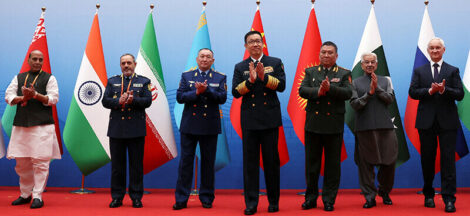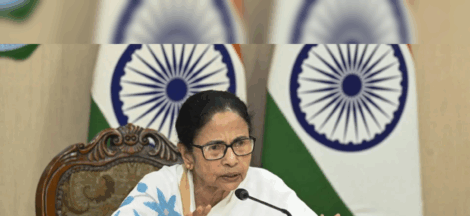Unless K. Chandrashekhar Rao is playing the BJP’s game,
as his critics suspect, his attempts to put together a non-Congress, non-BJP
alliance do not make sense.
If the real objective of the Telangana chief minister is
to oust the BJP, he simply cannot afford to brush aside the claims of the
Congress to be a part of the proposed federal front.
He may be an opponent of the Congress. But in order to
pursue his anti-BJP agenda, he will have to take on board those with whom he
may have serious political differences. It will be known to be a temporary,
even opportunistic alliance to achieve a specific goal. But it is unavoidable
in the world of real politics. Otherwise, the proposed venture will flounder.
Besides, Rao has to be aware of his own limitations.
Notwithstanding his resounding victory in the recent assembly elections, he is
still not in a position to claim the stature of a major national leader. For
all practical purposes, he remains the regional leader of a small state.
For him, to try to be the pivot of an all-India alliance
is unrealistic. What is more, his latest attempts, which run parallel to the
other endeavours that are being made to cobble together an anti-BJP
mahagathbandhan (grand alliance), can give rise to unfavourable interpretations
of his motive. After all, the formation of two gathbandhans can only help the
BJP.
What is more, it will be fatuous to ignore the Congress
at a time when its successes In Karnataka, Rajasthan, Madhya Pradesh and
Chhattisgarh have shown that the party is not quite as dead as it was presumed
to be after its humiliating drubbing in 2014.
There may be questions about whether Rahul Gandhi should
be projected as the mahagathbandhan’s prime ministerial face, as the DMK
president, M.K. Stalin, wants to do. But an insistence on keeping the Congress
out of an anti-BJP front is devoid of political sense.
The basis of Rao’s objections is understandable. He can
hardly be expected to hobnob with either the Congress or the Telugu Desam so
soon after fighting both of them in the assembly elections. Yet, his eagerness
to play a national role after handing over the responsibility of running
Telangana to his son is making the chief minister take a step which has little
chance of success.
His best option is to remain confined to his state for
the time being and consolidate his party’s position. Touring the country in a
chartered plane with his family in search of support for his federal front is a
waste of time and money. It can only create confusion in the ranks of the
national opposition without enabling Rao to fulfil his dream.
In fact, such futile endeavours will make it all the more
difficult for him to have any truck with a mahagathbandhan if and when it is
formed, for his image as a spoiler will remain. What Rao will have to remember
is that the country is at present in a condition similar to the one which
prevailed in 1977 when there was a stark division between authoritarianism on
one side and the defenders of democracy on the other
As at that time, the forthcoming general election is
expected to decide the shape of the nation’s future. Given the mutually
exclusive nature of the two sides, there is hardly any middle ground. One has
to be either with the Right who are now the wielders of power, or with the Left-Liberals
who can be said to be waging the battle of their lives.
As of now, no one can say which side has edge, but the
ideological contours are clear and are likely to remain so in the foreseeable
future. Although there are a few fence-sitters like the Odisha chief minister,
Naveen Patnaik, once an ally of the BJP, who may be waiting to see which side
will emerge on top, theirs is not an enviable position, for it is suggestive of
expediency. It is not surprising that Rao called on him first before flying to
Kolkata to meet Mamata Banerjee.
But whatever his hosts in various state capitals –
Bhubaneshwar, Kolkata, Lucknow and finally Delhi – tell him, Rao will have to
make up his own mind. Since the focus of virtually his entire political career
was on securing his demand for Telangana, he may not have had much time in
examining the secular/communal divide that has grabbed so much attention
elsewhere, notably in northern and western India.
Moreover, the south has been relatively free of the
communal virus as the absence of the rampaging gau rakshaks shows. One probable
reason is that the BJP is not as strong in the south as in the north and the
west. For the regional parties, the Congress has a greater presence. It is this
factor which may have coloured Rao’s vision. But, now, he has to develop a
wider outlook. (IPA Service)
The post KCR Is Playing Into BJP’s Hands appeared first on Newspack by India Press Agency.



